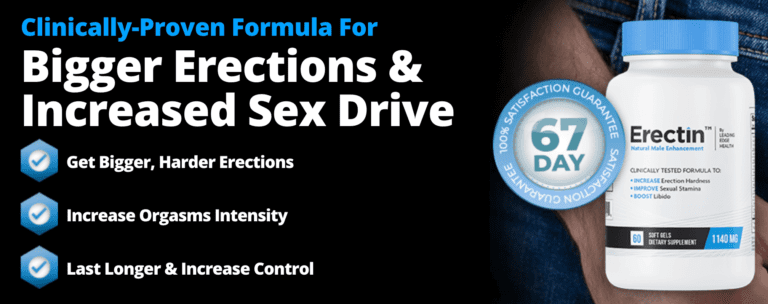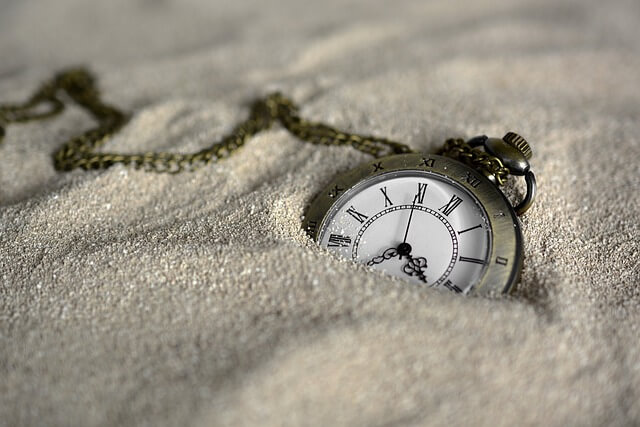Let’s face it, sleep is essential for a healthy body and mind. But who would have thought that a good night’s rest could also impact your bedroom performance? That’s right, a lack of sleep can actually lead to premature ejaculation, a common sexual dysfunction that can put a damper on your intimate moments.
In this article, we’ll dive into the connection between sleep and sexual health, and how a lack of shuteye can result in premature ejaculation. By understanding the importance of sleep for your sexual health, you’ll be able to take control and improve your performance in the sack. So, grab your comfy pajamas and settle in, because this might just be the best bedtime story you’ll ever read!
The link between lack of sleep and premature ejaculation
We all know that sleep is crucial for our physical and mental health, but did you know it also plays a vital role in our sexual health?
Studies show that individuals who suffer from sleep disorders such as obstructive sleep apnea and poor sleep quality have a higher risk of experiencing erectile dysfunction, premature ejaculation, and other sexual dysfunctions.
One of the reasons for this is that lack of sleep can lead to a decline in testosterone levels. Testosterone is a crucial hormone for sexual function and helps maintain sexual desire, sperm production, and bone density. When testosterone levels drop, sexual performance can suffer, including premature ejaculation.
Evidence of studies that show a correlation between sleep and premature ejaculation
There’s a growing body of evidence that supports the link between sleep and premature ejaculation. A study published in the Journal of Sexual Medicine found that men who reported sleep disturbances were more likely to experience premature ejaculation, while those who slept longer were less likely to experience it.
Another study found that sleep deprivation can decrease testosterone levels, a risk factor for premature ejaculation. The study concluded that getting enough sleep is important for maintaining sexual health and preventing premature ejaculation.
Lack of sleep results in low serotonin levels in the brain, and the lower levels prompt your body to ejaculate more quickly. Poor sleep quality could be a risk factor for acquired premature ejaculation.
While more research is needed to fully understand the link, there’s enough evidence to suggest that getting enough sleep can help prevent premature ejaculation and maintain sexual health. So, make sure you’re getting enough shut-eye to keep your sexual health in top form!
Lack of sleep and other sexual dysfunctions
Sleep deprivation has been linked to various sexual dysfunctions, including decreased libido, erectile dysfunction, and decreased testosterone levels. These effects can significantly impact sexual performance and overall sexual health.
Sleep disorders, such as obstructive sleep apnea and shift work sleep disorder, can cause a decline in sexual function by affecting the nervous system and hormones that regulate sexual response. Studies show that poor sleep quality and lack of sleep are independent risk factors for sexual dysfunctions like premature ejaculation, erectile dysfunction, and decreased libido.
Sleep disorders disrupt the normal sleep-wake cycle and cause sleep deprivation, leading to a decline in testosterone levels essential for healthy sexual function. Additionally, sleep problems can cause relationship issues, emotional stress, and mental health issues, all of which can negatively affect sexual performance.
Decreased stamina and endurance
Sleep deprivation has been linked to decreased stamina and endurance, not just physically but also sexually. Poor sleep quality can lead to reduced sexual performance, including difficulty controlling ejaculation. When the body is fatigued, it has a more challenging time functioning optimally, including during sexual activity.


How to improve sleep to reduce premature ejaculation
A good night’s sleep is essential for a healthy and fulfilling sex life. Not only does it provide energy and refreshment, but it also helps regulate various bodily functions, including sexual function. Poor sleep can lead to premature ejaculation, and addressing these sleep issues can greatly improve your sexual health and satisfaction.
So, how can you improve sleep and reduce the risk of premature ejaculation?
Importance of a regular sleep schedule
Having a consistent sleep routine is crucial for better sleep and overall well-being. Going to bed and waking up at the same time every day, including weekends, helps regulate the body’s internal clock and supports healthy sleep patterns.
Irregular sleep patterns, such as those experienced by shift workers, can contribute to sleep deprivation and negatively impact sexual health.
By following the same steps each night, your mind begins to associate these actions with sleep, helping you to wind down and prepare for rest.
This routine can create a sense of predictability and stability, reducing stress and anxiety, and improving your sleep quality. By prioritizing self-care and taking time to relax before bed, you can wake up feeling more refreshed and energized.
Create a sleep conducive environment
To improve sleep quality, it’s important to create a sleep-conducive environment. Keep your bedroom cool, dark, and quiet to create a relaxing and peaceful atmosphere.
Limit exposure to screens before bed, and avoid consuming caffeine or alcohol close to bedtime. If necessary, use blackout curtains, earplugs, or a white noise machine to block out any distractions.
Exercise regularly
Physical activity can help improve sleep quality and duration but be sure to avoid strenuous exercise close to bedtime. This can make it harder to fall asleep and impact sleep quality.
The role of relaxation techniques
Relaxation techniques can help reduce stress, which is a common cause of sleep problems. Practicing deep breathing, meditation, or yoga before bed can help you fall asleep and improve sleep quality.
Consider sleep aids
If you’re still having trouble falling or staying asleep, consider talking to your doctor about non-habit-forming sleep aids.


Other Causes of premature ejaculation
Lack of sleep is just one of many factors that can lead to premature ejaculation. Other causes include:
Biological causes
Biological causes of premature ejaculation are the underlying physiological factors that contribute to the development of this condition. These are most of the causes of lifelong primary premature ejaculation which include:
Sensitivity of the penis – In some cases, the penis is overly sensitive, leading to premature ejaculation.
Neurological factors – Certain nerve pathways and neurotransmitters regulate ejaculation, and problems with these pathways can result in PE. Medications may be used to help PE in this instance.
Hormonal imbalances – Low levels of hormones such as testosterone or imbalanced levels of other hormones can contribute to PE.
Chronic health conditions – Certain medical conditions, such as multiple sclerosis, which can affect nerve function, and diabetes can contribute to PE.
Psychological factors
The psychological causes of PE include:
Anxiety – General anxiety, relationship stress, and performance anxiety can all contribute to PE.
Trauma -Traumatic experiences, such as sexual abuse, can lead to PE.
Depression – Men with depression may experience PE as a side effect of their condition.
Erectile dysfunction (ED) – Men with ED may experience PE as a result of their concerns about maintaining an erection.
Summary of the effects of sleep deprivation on sexual function
We all know that sleep is crucial for our health, but now we also know it also plays a vital role in our sexual health too. Unfortunately, sleep deprivation and poor sleep quality can significantly impact your sexual function, including erectile function, libido, and how quickly you ejaculate.
While we sleep, our bodies work hard to regulate various functions, including our nervous system. This is why getting enough quality sleep is so important for our sexual performance. To assess the impact of sleep disorders on your sexual function, consider speaking with your doctor and undergoing a medical history survey, as well as using diagnostic tools. Sadly, sleep-disordered breathing conditions like sleep apnea can also cause decreased libido and difficulties with getting and maintaining an erection.
People who work odd hours or have disrupted sleep patterns are at a higher risk of developing these sexual dysfunctions. To keep your sexual health in top shape, prioritize healthy sleep habits such as sticking to a regular sleep schedule and using relaxation techniques to improve the quality of your slumber.
In summary, neglecting your sleep can have serious consequences for your sexual function, including premature ejaculation.
It is essential to address these sleep issues to maintain a healthy sex life and to reduce the risk of developing sexual dysfunctions. By focusing on adequate sleep, relaxation techniques, and emotion regulation, individuals can improve their overall sexual satisfaction and maintain a healthy and fulfilling sex life.
Don’t let lack of sleep put a damper on your intimate life – take control and make your sleep a priority today!












